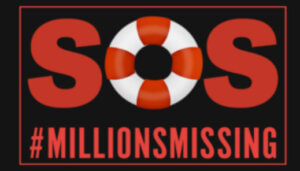Here is a template letter to send to the National Health and Medical Health Council. Please add any questions you have!
You can email your letter to nhmrc@nhmrc.gov.au or you can post it to Level 1, 16 Marcus Clarke Street, Canberra ACT 2601.
Dear Prof Kelso,
I’m one of the 94,000 Australians with Myalgic Encephalomyelitis. There are even more of us, perhaps up to 400,000 who fit into the wider criteria of chronic fatigue syndrome. I’m very disappointed that Australia has not funded a study into chronic fatigue syndrome (CFS) for more than a decade. (you may wish to insert something about your personal circumstances and how a lack of research has harmed you.)
- How can we get equitable funding for this extremely debilitating illness and make up for lost time and opportunities?
- you claim more than a million dollars has been given to Prof Lloyd for research into CFS. Looking closely at the spreadsheet on your website and hearing that Prof Lloyd says he spends 90% of his time on hepatitis B, could you please re-analyse the data and tell me if that claim still stands?
- Will you to update the criteria from the outdated 2002 Australian for chronic fatigue syndrome (Loblay et al) and replace it with the 2012 International Consensus Criteria. Australian experts were consulted and had input into the development of these criteria. It is endorsed by the South Australian, ACT, Victorian, Tasmanian, Northern Territory and New South Wales patient associations.
- Will the NHMRC will be putting out a targeted call for research into M.E.? If so, when is this likely to happen? What will be the budget allocated?
- When evaluating submissions, will you be consulting experts currently working in this field? Will you contact patient groups such as Emerge Australia and seek their input?
I hold concerns that some Australian experts are still advocating for dangerous therapies such as graded exercise therapy (GET) and cognitive behavioural therapies (CBT) as a ‘cure’. Please do not fund any of these studies or use experts who advocate for them. Please fund biomedical research into immune, microbiome, neurological and relevant fields.
Emerge Australia’s president said “there is no good evidence to support the use of graded exercise therapy or cognitive behavioural therapy and there is important emerging evidence on genetic and immune markers for the condition, so we ask the Department of Health not to waste precious research dollars on those studies.”
The UK’s ME Association said “the largest and most recent survey of patient evidence on the acceptability, efficacy, and safety of CBT, GET, and pacing was carried out by The ME Association and involved 1428 respondents. In this case, 73% of respondents reported that CBT had no effect on their symptoms and 74% that their symptoms were made worse by GET.
6. Could Australia contribute to the global effort by contributing resources to international studies?
Exciting news from Griffith University, who have just patented a diagnostic blood test. Overseas, trials from Norway are showing that rituximab may be a useful treatment.
7. How could Australia go about replicating these studies here so that if the drug is found to be effective, Australian patients can have access to it?
I would also welcome any suggestions as to what patients can do to support much-needed research into this field.
Thank you for your attention to this important matter.
regards,
(your name)
Artwork by Peta Manning




